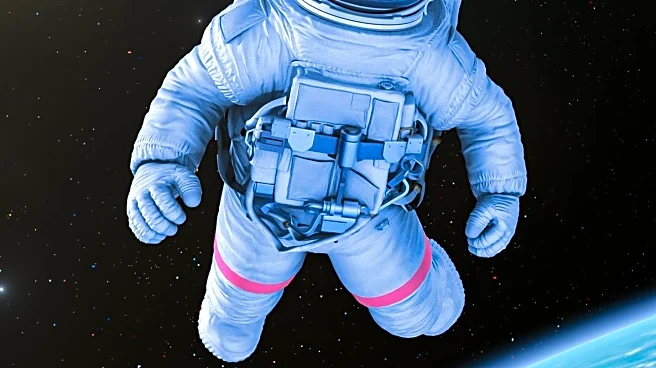What's Happening?
The challenges faced by astronauts during space travel extend beyond the physical and mental demands of the mission itself, affecting their families as well. The article discusses the experiences of astronaut families, drawing parallels with military families due to the extended periods of separation and associated risks. It highlights the emotional strain on families who watch their loved ones embark on perilous journeys, often sharing these moments with the public. The article also touches on the lack of official research on the impact of space travel on family dynamics, relying on anecdotal evidence from astronauts and their families.
Why It's Important?
Understanding the impact of space travel on astronauts' families is crucial as space missions become more frequent and diverse, including commercial space travel. The emotional and psychological well-being of astronauts and their families can influence mission success and the sustainability of long-term space exploration. Insights into these dynamics can inform support systems and policies to better prepare families for the unique challenges posed by space travel, potentially improving the overall health and stability of astronaut families.
What's Next?
Future research could focus on quantifying the effects of space travel on family dynamics, including divorce rates and child well-being. Developing support programs similar to those used by military families could help mitigate stress and improve coping mechanisms. As commercial space travel grows, understanding the unique challenges faced by families of space tourists compared to professional astronauts will be important for developing tailored support systems.
Beyond the Headlines
The public nature of astronauts' lives adds an additional layer of complexity to family dynamics, as their experiences are often shared with the world in real-time. This visibility can be both a source of pride and stress for families, highlighting the need for privacy and support. The evolving nature of space travel, including the potential for longer missions and space tourism, will continue to shape family experiences and societal perceptions of space exploration.









